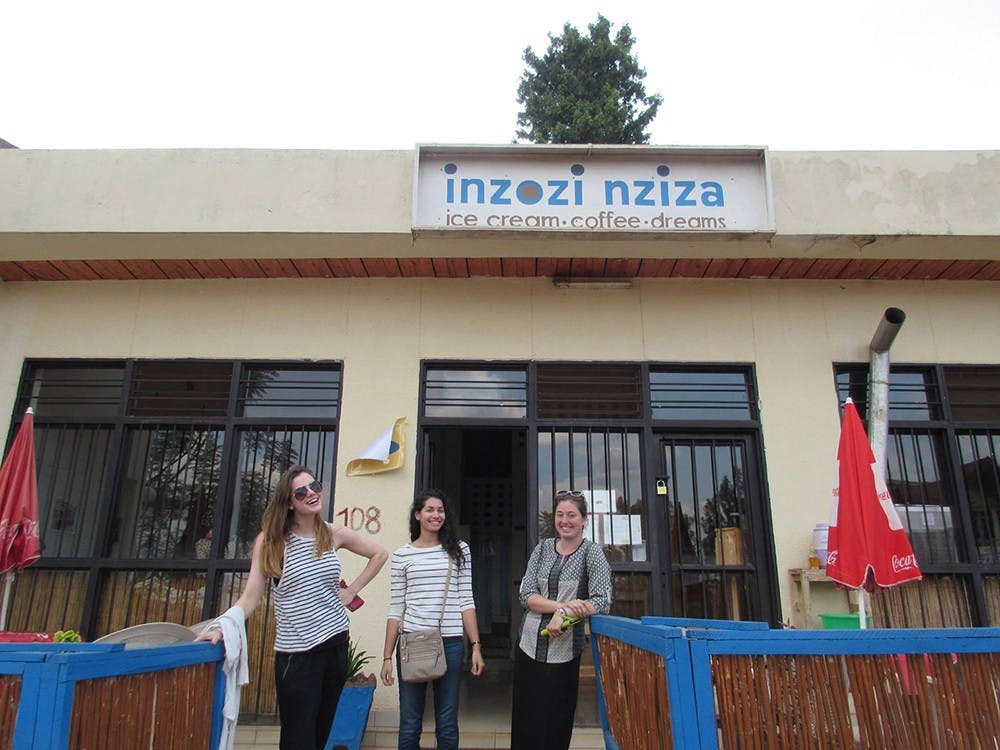My friends and I were meandering around a Rwandan city we knew nothing about, all because we thought we had seen a sign that said “ice cream.”
There was just something so alluring about eating ice cream outside in this strange, hot place — to taste a bit of home.
There’s nothing wrong with Rwandan food per se, but it does consist mostly of starches — rice and multiple types of potatoes constitute every meal. Breakfast is bread. Lunch is bread and rice. Dinner is rice and ?potatoes.
We wanted something sweet.
Enter Inzozi Nziza, literally, “Sweet Dreams” in Kinyarwanda. The sign bears the slogan “Ice cream. Coffee. Dreams” — which pretty much describes mine.
In Rwanda, everything and everyone is connected to the genocide in some way. Events preceding the 1994 mass killings are known as “before.” Everything now is “after.”
The “after” phase is all about development, about reconstructing a society torn apart by genocide.
Twenty years ago, the economy was at zero.
Houses were destroyed, businesses were abandoned and a functioning government was non-existent.
Today, there are roads, construction sights and new businesses. The country has risen as a phoenix from its fiery past of violence and suffering.
Inzozi Nziza is one of the bright spots to come out of the ashes.
Born out of a partnership between two American businesswomen and Ingoma Nshya, Rwanda’s first all-female drumming group — an activity formerly reserved for men — Inzozi Nziza opened in 2010 as both an economic development initiative and a ?spirit-boosting venture.
The drumming group promotes female empowerment while uniting groups of Rwandans previously pitted against each other.
It also gives women the tools to be financially independent while supporting the local economy by employing locals and using local milk, sugar and other ingredients.
We happened upon it by luck. We had circled the entire neighborhood before stumbling upon the gem. The ice cream was soft-serve, lighter and milkier than ice cream in the States.
We were the only people in the shop — then again, I’m not sure anyone but slightly homesick Americans would be in an ice cream parlor at 2 p.m. on a Tuesday.
While efforts to rebuild institutions after the genocide certainly come from a place of hope and a profound belief in the resilience of Rwandans, Inzozi Nziza is different because it also advocates for the simple ?pleasures that make life beautiful — and sweet.
Ice cream makes people happy. It’s a fact that transcends nationality and culture. We found a bit of happiness that afternoon. And others do too.
By the numbers, the Rwandan economy is doing quite well. There is still enormous work that needs to be done. Poverty levels still hover around 50 percent, but 20 years ago, Rwandan society was built from scratch, and today it has roads, businesses and a growing economy.
In Butare, there’s a little shop that serves ice cream to improve the local economy, even in small ways.
But there’s something else improving Rwanda that can’t exactly be measured by statistics — the Rwandan spirit.





